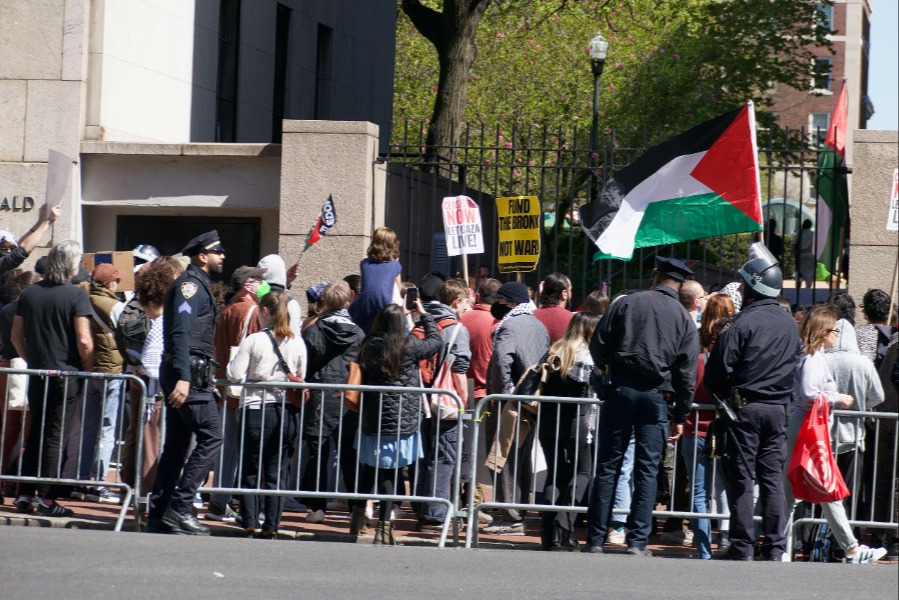Questions for the Justice Department on Cohen and Whitaker
Friday was supposed to be a very big day for those following the investigation being led by Special Counsel Robert Mueller. Not only was Acting Attorney General Matthew Whitaker scheduled to testify before the House Committee on the Judiciary, but Michael Cohen—President Trump’s former attorney, now turned cooperating witness for Mueller’s investigation—was supposed to do the same before the House’s oversight and intelligence committees.
Published by The Lawfare Institute
in Cooperation With

Friday was supposed to be a very big day for those following the investigation being led by Special Counsel Robert Mueller. Not only was Acting Attorney General Matthew Whitaker scheduled to testify before the House Committee on the Judiciary, but Michael Cohen—President Trump’s former attorney, now turned cooperating witness for Mueller’s investigation—was supposed to do the same before the House’s oversight and intelligence committees.
But then Cohen postponed his testimony, a move that may have been requested by the special counsel’s office to avoid any complications with its ongoing investigation. And Whitaker threatened to withhold his voluntary testimony unless Judiciary Committee Chairman Jerrold Nadler, guaranteed that he would not issue a subpoena prior to or during the hearing. Nadler ultimately conceded to this request after a brief stand-off, clearing the way for Whitaker to testify. Cohen’s appearance, meanwhile, has been rescheduled for the end of the month.
That said, while onlookers may not have gotten all of the answers they’d hoped for last week, we’ve got a few more questions for—and about—both Cohen and Whitaker. And we thought it was worth addressing those questions through another avenue: our old friend, the Freedom of Information Act (FOIA).
For Cohen, our big question is the same one that many were hoping his testimony would answer: whether Trump did, in fact, direct him to lie to Congress about his business dealings in Russia. BuzzFeed News reporters Jason Leopold and Anthony Cormier reported as much this past January, but their story was swiftly challenged by the special counsel’s office, whose spokesman, Peter Carr, asserted that “BuzzFeed’s description of specific statements to the special counsel’s office, and characterization of documents and testimony obtained by this office, regarding Michael Cohen’s congressional testimony are not accurate.” For its part, BuzzFeed News has stood by the story, which it attributes to two federal law enforcement sources.
We can’t FOIA Cohen himself to ask what he’s told the special counsel’s office. But we can ask the Justice Department about the special counsel’s response to the BuzzFeed story. For this reason, we’ve instead submitted FOIA requests asking for any correspondence from personnel in the special counsel’s office to other executive branch personnel that “contests, questions the accuracy of, or raises objections to allegations that Michael Cohen has informed, or confirmed for, Justice Department personnel that President Donald Trump instructed Cohen to lie about or otherwise mischaracterize relevant facts in testimony before Congress.” In addition, we’ve requested any press guidance, congressional correspondence, and other outward-facing statements that the special counsel’s office or Justice Department has made about the same. Some of these documents will no doubt be withheld or are not subject to disclosure under FOIA, given the ongoing investigation. Yet the government’s response itself may shed light on whatever inaccuracies it perceives in the BuzzFeed article and the extent to which those inaccuracies do or do not undermine the main substance of the report.
As for Whitaker, Congress had a chance on Friday to ask about the awkward statements he made late last month indicating that he was “fully briefed” on the Mueller investigation, that it was “close to being completed,” and that it would result in a “full report.” Among other issues, all three go directly to the question of Whitaker’s involvement in overseeing the Mueller investigation, something that he has reportedly persisted in over the objections of career Justice Department ethics officials (a topic about which we’ve submitted FOIA requests—and received responses—in the past). But we’re curious how others in the Justice Department may have reacted to Whitaker’s disclosures. For this reason, we’ve submitted a FOIA request for “[a]ny e-mail correspondence, including attachments, sent or received by personnel in the Office of the Attorney General or the Office of the Deputy Attorney General discussing or making mention of any [of those] statements . . . .”
Our FOIA requests are embedded below. As always, we’ll share the results with Lawfare readers as soon as we have them:






